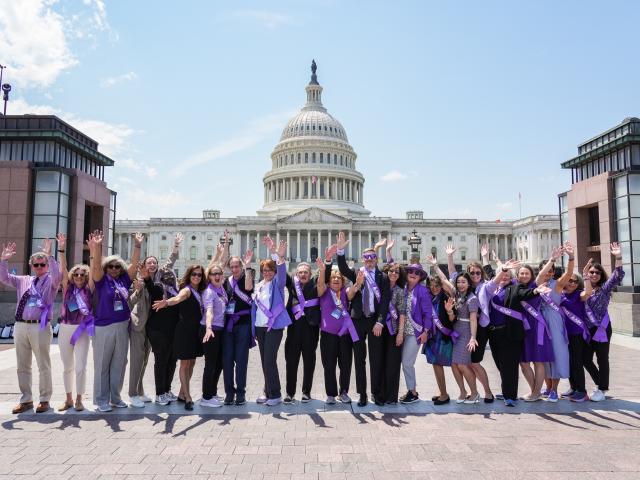WASHINGTON, D.C., June 9, 2016 - Today, the Senate Appropriations Committee approved a historic funding increase for Alzheimer's disease research funding and advanced critical care and support legislation. The Alzheimer's Impact Movement (AIM) applauds the committee for its bipartisan collaboration in approving an unprecedented $400 million increase in NIH funding for Alzheimer's disease research and inclusion of the Health Outcomes, Planning, and Education (HOPE) for Alzheimer's Act (S. 857) into its funding bill.
Today, there are more than 5 million people living with Alzheimer's disease and more than 15 million family and friends serving as unpaid caregivers. It is the most expensive disease in America at a cost of $236 billion annually, and is the only leading cause of death in the United States that cannot be prevented, effectively treated or even slowed.
"Today's action combined with last year's then historic funding increase moves us closer to a breakthrough against this fatal and devastating disease," said Robert Egge, AIM Executive Director. "What's more, the bipartisan leadership demonstrated by Senators Blunt and Murray and the other members of the committee have shown the millions of Americans affected by Alzheimer's disease that they have allies in Congress working with them to end the Alzheimer's epidemic."
If signed into law, Alzheimer's disease research funding would reach an important milestone - passing the halfway mark toward the at least $2 billion funding level experts agree is necessary to meet the first goal of the National Alzheimer's Plan to Address Alzheimer's Disease to prevent and effectively treat Alzheimer's disease by 2025. The HOPE for Alzheimer's Act, which the Alzheimer's Association and AIM helped develop and strongly supported, would improve access to information on care planning and support services for newly diagnosed individuals and their families.
For more information about the Alzheimer's Impact Movement, visit alzimpact.org
